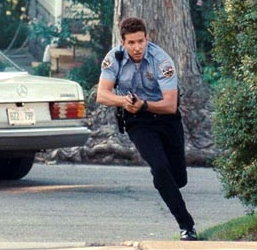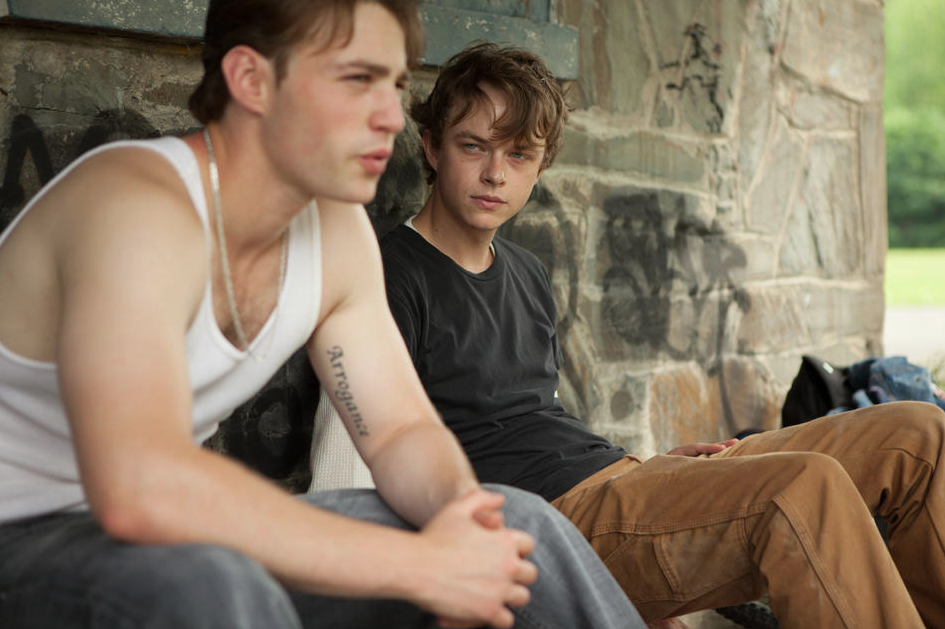Paolo here. I am the bearer of bad news. Apparently there are Blue Valentine' haters out there, two of whom are close writer friends of mine. One of these friends has repeatedly criticized the movie through Twitter, especially its director Derek Cianfrance's melodramatic tendencies.

At first I disagreed with this minor yet tolerably vocal crowd, since that movie evinces hard-hitting, unquestionable emotions. I finally admit that yes, its saturated colours do evoke a hispter version of a Todd Haynes picture (nothing wrong with that!). And as it pains me to write this, Young Dean's (Ryan Gosling) appearance and actions are reminiscent of the cartoony, blinding spark on a boyband member's smile.
 Maybe it's Cianfrance's new movie, The Place Beyond the Pines, that allowed me come to terms with the director's melodrama leanings. This release is being sold as an epic crime drama and sure, it delivers on that regard; a movie with a masculine cast gets slapped and labelled with a masculine genre. I normally take most movies at face value but I'll share with you how I see this movie. One that features a handsome man from the wrong side of the tracks, dysfunctional families, rapid aging and time lapses, and the revelation of a secret identity.
Maybe it's Cianfrance's new movie, The Place Beyond the Pines, that allowed me come to terms with the director's melodrama leanings. This release is being sold as an epic crime drama and sure, it delivers on that regard; a movie with a masculine cast gets slapped and labelled with a masculine genre. I normally take most movies at face value but I'll share with you how I see this movie. One that features a handsome man from the wrong side of the tracks, dysfunctional families, rapid aging and time lapses, and the revelation of a secret identity.
We're watching a fucking soap opera, people. Revenge with Boys.
To me, when I notice the campy and ridiculous in a movie I have no other choice but to embrace it. Which is not to say that this is a typical soap, one reason being its surprising simplicity. Revenge's protagonist Emily Thorne has slogged through two seasons, a fake identity, and a terrorist organization to inflict revenge on her enemies, the Graysons. Nobody from that family is dead yet. Pines has Jason (Dane DeHaan) in place of Emily. Instead of all of Revenge's elaborate shenanigans all Jason has to do is buy a gun from a bad neighbourhood.
And of course, despite of having both campy and unironic possibilities, the movie chooses the latter. It doesn't reward us with gushing revelations like "You did this to me!" What we have instead are Jason's shellshocked tears as well as his 'mortal enemy' Avery Cross' (Bradley Cooper). Or if it does, the characters do what I assume straight men do and yell about something as long as it's not whatever the really want to say.
(Speaking of which, I've been reading The Count of Monte Cristo to put this movie and Revenge in context and I make Victoria Grayson faces when the I read a part about death or scheming. I oughta make some selfies.)
Like Sam Mendes, Cianfrance's interest lies on what erodes relationships. In Blue Valentine that force was time. Time plays a similar role in The Place Beyond the Pines, but Cianfrance also shows us social forces that destroy relationships in the most catastrophic ways.

As The Place Beyond the Pines fits both genres of crime and melodrama, it also shares elements from another genre - the western - and not just because of Luke Glanton's (Gosling) bank robberies. Some of you who watch might roll your eyes when Luke and Avery's (Bradley Cooper) short animosity gets passed on through their respective sons Jason and AJ (Emory Cohen). This plot 'contrivance' isn't just a trademark of a melodrama, it also speaks to this mentality that skip a generation or so. The mentality I'll explain isn't just coming from the American psyche but within any nation that has felt amoral desperation. That their communities and families are too intertwined, claustrophobic, and thus inclined towards being bellicose. The movie works as a pre-Western because of Jason's decision to move, well, west. His search for a new frontier is like cleaning the slate that is his troubled parentage.